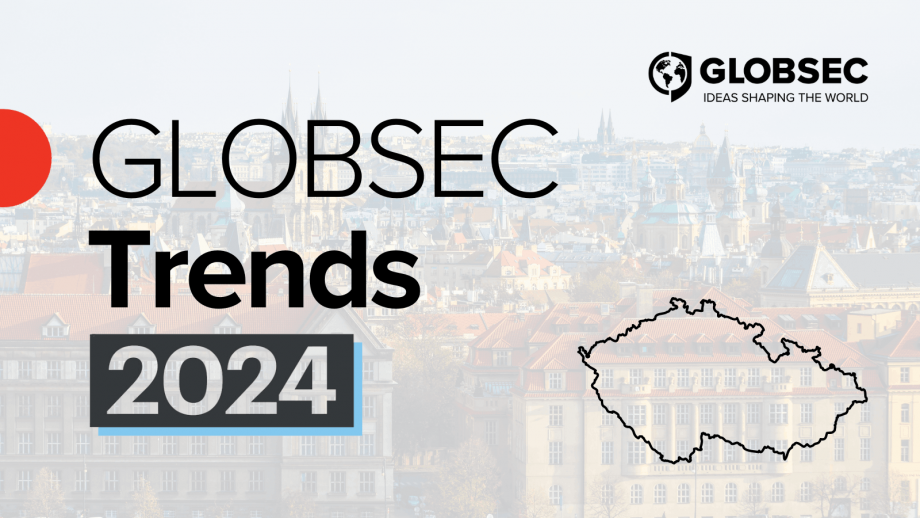GLOBSEC Trends 2024 Czechia

The Czech Republic still holds the position of a regional "champion" of supporting democratic values and pro-Western attitudes.
Membership in NATO has the highest support (82%), helped by the beginning of Russian aggression in Ukraine which made the importance of security guarantees more visible in the Czech eyes. EU membership also maintains support (71%), but has gradually declined over the past two years (from 80% in 2022). Attitudes towards the EU are strongly linked to the persistent perception of a "dictate from Brussels", which rose from 33% in 2020 to 57% this year. The EU is also perceived as a threat to their identity and values by a third of the population. These attitudes are likely to be linked to a persistent perception of the threat of migration, especially from countries outside Europe (69%).
Czechs clearly perceive Russia as a threat (76%), but fatigue from the protracted war in Ukraine is impacting this attitude, as it decreased from 84% in 2022. Czechs also largely agree that Russia which attacked Ukraine is responsible for the war in Ukraine (68%). Czechs are inclined to think that Ukraine should become a member of the EU and NATO. However, a certain impact of the so-called peace narratives on Czech society can also be seen, as about a third of Czechs wish Ukraine to be a neutral country.
90% Czechs agree that democracy as a system based on equality, human rights and freedoms, and the rule of law is good for their country. Nevertheless, up to one third of the people would be attracted to a totalitarian system without regular elections. Czechs often base their assessment of the country's post-communist development on its international standing, involvement in transnational organizations and dealing with complex problems such as migration or pandemics. Attitudes towards the democratic era are shaped more by the challenges Czechs face than by the political system itself. Conversely, disillusionment with democracy's inability to resolve economic and social differences, perceptions of inefficiency or corruption in democratic institutions, but also nostalgia for the perceived stability of the previous regime, can strengthen the appeal of a totalitarian system.
GLOBSEC Trends 2024 summarizes polling data on 9 Central and Eastern European countries: Bulgaria, Czechia, Estonia, Hungary, Latvia, Lithuania, Poland, Romania, and Slovakia. Respondents were asked about the EU, NATO, Ukraine, strategic partners and threats, democracy and the perception of various societal groups. The poll does not only allow for highlighting regional differences, but some questions are used to track changes in public opinion over time.
The entire GLOBSEC Trends 2024 report in English is available here.